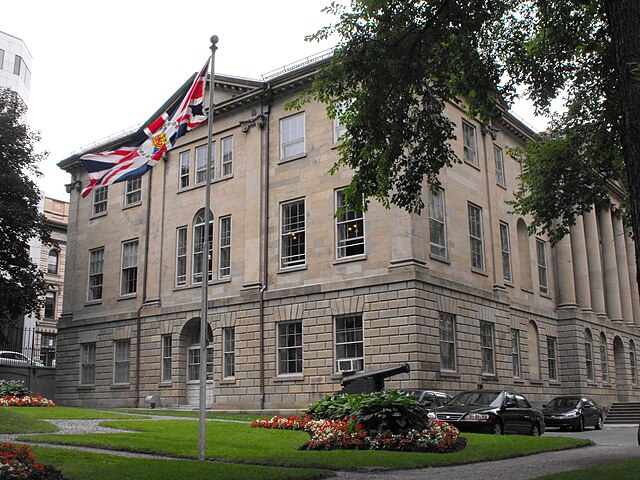Nova Scotia’s government is pledging to reduce taxes, attract new investment, and expand the province’s workforce as part of its economic strategy, according to the Speech from the Throne delivered by Lt.-Gov. Mike Savage on Thursday.
The address, which sets the government’s priorities for its second term, emphasized the need for economic growth to support essential services, including health care, housing, and education. Premier Tim Houston’s government is positioning workforce expansion and business development as critical to improving the province’s financial outlook and overall well-being.
Lower taxes, fewer regulations
The government plans to reduce the harmonized sales tax (HST), raise the basic personal exemption, and eliminate bracket creep—measures it says will put more money in the hands of workers and businesses. Small business taxes will be lowered, and the small business income threshold will rise to encourage entrepreneurship and hiring.
“We want to keep investing in health care, affordable housing, and lower taxes—but these things are only possible with more economic growth,” the speech stated.
The government also plans to remove some legislative bans on resource development, arguing that restrictive regulations have slowed economic progress. “Opposing investment and job creation cannot be our default,” the speech said, adding that development must be done in an environmentally responsible way.
Trade diversification and job creation
With ongoing concerns about potential U.S. tariffs on Canadian exports, the government is increasing efforts to find new markets for Nova Scotia products. Recent trade missions to Europe and the United States were highlighted as steps toward securing new buyers, particularly for the province’s seafood industry.
The government is also promoting job growth in emerging industries, including clean energy and critical minerals. The speech pointed to the potential of hydrogen, offshore wind, and lithium mining as key economic drivers, stating that these sectors could add $16 billion to the provincial economy.
“We must band together and push back against those who seek only to oppose,” the speech stated, referring to opposition to industrial projects. It called for a “growth-oriented mindset” to unlock Nova Scotia’s economic potential.
Workforce expansion and investment in skilled trades
Labour shortages remain a key issue in the province. To address this, the government highlighted investments in medical education and training, particularly through Cape Breton University’s new medical school and an assessment clinic designed to certify foreign-trained doctors. According to the speech, 265 new doctors—75 of whom are family physicians—have been added to the province since 2021, along with 1,750 more nurses.
The government also emphasized support for trades and resource industries, including agriculture, fishing, and forestry. Recent funding initiatives will help farmers purchase new equipment, modernize beef production, and expand Nova Scotia’s forestry brand.
“The best and most enduring solution to poverty is a good-paying job,” the speech stated, arguing that economic insecurity leads to poorer health outcomes and shorter life expectancy.
A focus on affordability
With the cost of living continuing to challenge many residents, the government reaffirmed its commitment to housing development. The province’s first housing plan, launched in its previous term, aims to create more than 40,000 new homes, with a focus on affordable and public housing.
Other affordability measures include cutting daycare fees to an average of $10 per day by the end of March and eliminating bridge tolls in the near future.
The government also announced that parking fees will be removed at all Nova Scotia Health facilities, including the IWK Health Centre, to ease financial burdens on patients and families.
Balancing economic growth with public services
The government acknowledged that its policy initiatives will require significant financial investment, pointing to health care spending that has grown from $4.8 billion in 2020-21 to more than $5.5 billion last year. It maintained that a stagnant economy would ultimately harm health outcomes and quality of life for Nova Scotians.
“We must do the work to attract businesses to our province because the government can only do so much without economic growth,” the speech stated.
The government’s approach signals an aggressive push for deregulation, lower taxes, and resource development, setting the stage for potential debate in the legislature over the balance between economic expansion and environmental and social concerns.





